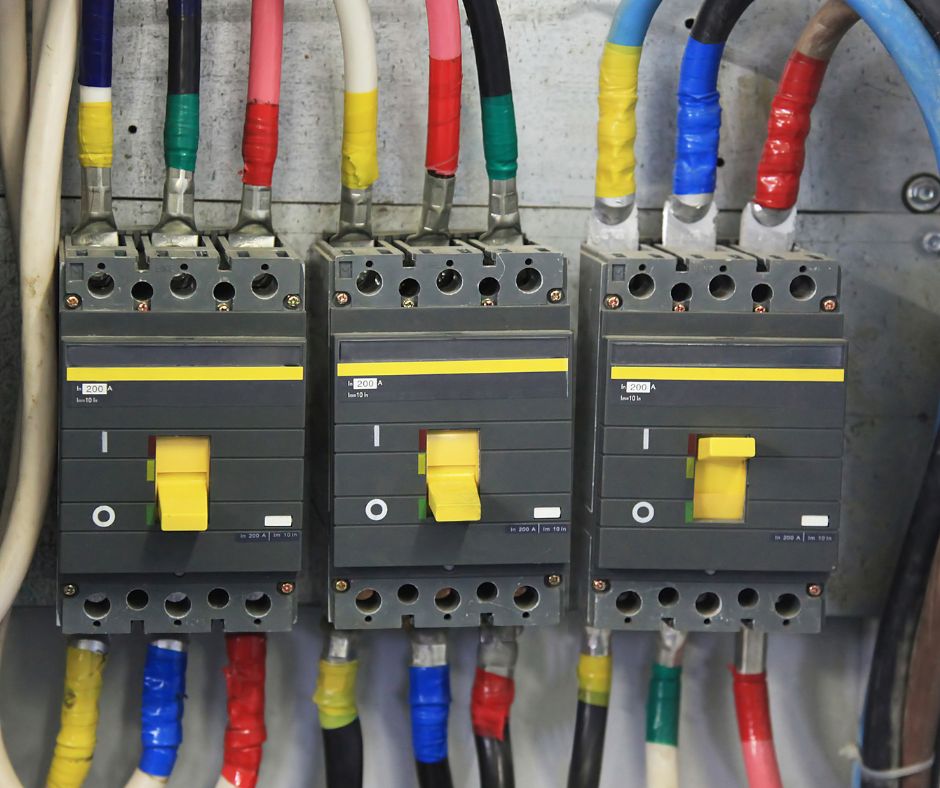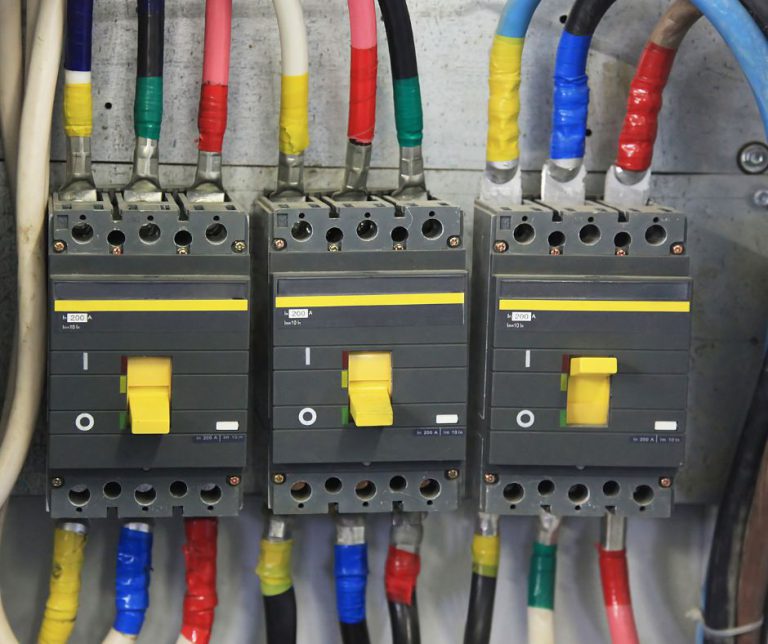Understanding the Vital Importance of Electrical Insulation Tape for Maximum Electrical Safety
Electrical insulation tape plays a pivotal role in safeguarding and insulating various types of electrical wires and cables. Commonly referred to as insulating tape, this essential component is fundamental in upholding safety standards in both professional settings and residential environments. It effectively prevents electrical shorts while also providing protection against moisture, dust, and abrasion. By ensuring the integrity of electrical systems, this tape is indispensable for enhancing safety and performance. Gaining a comprehensive understanding of its importance allows you to proactively mitigate potential hazards, ensuring a well-organized and efficient workspace that significantly boosts your overall safety and productivity.
Electrical insulation tape comes in a diverse array of sizes, lengths, and colors, all crafted from materials tailored for specific applications. This variety not only enhances insulation efficiency but also facilitates easy identification and organization of cables through strategic color coding. By implementing color differentiation, you can streamline your electrical work processes, allowing for quick identification of specific wires. This practice not only improves productivity but also elevates your organizational efficiency, making your tasks simpler and more effective.

Key Conditions That Can Lead to the Melting of Electrical Tape: Essential Insights
It is indeed possible for electrical tape to melt under certain circumstances. In this article, we will thoroughly explore the temperature thresholds that are associated with electrical tape, detailing the specific conditions that may trigger melting, and identifying critical signs of overheating that require your attention. Understanding these factors is vital for ensuring the safe and effective application of electrical insulation tape across various uses, ultimately safeguarding both your projects and personal safety.
Exploring the Temperature Limits of Electrical Tape for Safe and Effective Applications
Similar to many materials, electrical tape has defined temperature limitations that must be acknowledged for safe and effective usage. Most standard electrical tapes can endure temperatures around 80°C, while some heavy-duty versions are specifically designed to withstand higher temperature ranges. When these limits are surpassed, the structural integrity of the tape can begin to deteriorate, posing risks that can jeopardize safety and functionality.
As temperatures rise and approach the maximum capacity of the tape, its performance tends to decline significantly. This degradation can present in various forms, such as melting, developing a gooey texture, or in extreme cases, complete failure. Being aware of these temperature restrictions is essential for maintaining safety and effectiveness in electrical applications, enabling your tasks to be completed without unnecessary hazards or complications.
For settings that experience extreme heat, it is advisable to opt for high-temperature variants of electrical tape. For instance, heat-resistant tape, crafted from materials like fiberglass or silicone, can endure temperatures of up to 200°C or more, making it an ideal choice for applications that are subjected to intense heat exposure.
Also Read: Keep Your Pets Safe Around Electricity
Get Your Quote Today!
Request Our FREE Electrical Inspections

Identifying the Primary Factors That Contribute to Electrical Tape Melting
Electrical tape can melt for various reasons, primarily due to exposure to extreme heat. Understanding these causes is crucial for ensuring its safe and effective application. Below are some common factors that may lead to tape melting:
The Hazards of Excessive Heat Exposure on Electrical Tape
The foremost reason for melting electrical tape is its exposure to elevated temperatures. When the tape is placed near hot surfaces, engines, or components that generate significant heat, it may start to soften, bubble, or even melt entirely. Additionally, electrical systems such as power circuits can generate more heat than the tape is designed to withstand, particularly during malfunctions or overload situations.
Consequently, when employing electrical tape in proximity to high-temperature areas, it is essential to verify the temperature ratings of the tape to avert potential failures and ensure safety.
How Environmental Conditions Affect the Longevity of Electrical Tape
Electrical tape is not intended for perpetual use. Over time, both the adhesive and the tape material can deteriorate, especially when subjected to UV light, moisture, or extreme environmental conditions. This degradation significantly diminishes the insulating properties of the tape. As the tape ages, it may become less effective, making it increasingly prone to melting even at lower temperatures than anticipated.
Regular wear and tear are an inherent aspect of the lifecycle of electrical tape. Therefore, it is essential to conduct routine inspections of the tape for any signs of aging or damage, ensuring ongoing safety and performance.
Potential Risks Linked to Improper Application of Electrical Tape
Applying electrical tape in less-than-ideal conditions can result in premature failure. For instance, if the tape is wrapped too tightly, subjected to friction or heat, or overstretched during application, its efficiency may be compromised. Moreover, wrapping tape around sharp edges or applying it to components known to overheat, such as light bulbs or electrical outlets, can create complications unless the tape is specifically rated for such applications.
Also Read: 10 Ways to Save On Power And Energy Costs
Recognizing the Signs of Overheating Electrical Tape
If you suspect that your electrical tape is overheating, there are several key indicators to be aware of. Here are the most common signs that suggest your tape may be melting or experiencing excessive heat:
Recognizing Sticky or Tacky Texture: A Warning of Overheated Tape
A noticeable change in texture, particularly a sticky or tacky feel, is often one of the initial signs of melting electrical tape. This alteration can serve as an early warning that further degradation is occurring, indicating that the tape may no longer provide adequate insulation.
Spotting Discoloration: A Key Indicator of Heat Damage
Overheating electrical tape may exhibit significant discoloration. You might observe a shift from its standard black or colored appearance to hues of brown, dark gray, or even black. This change occurs as heat causes the breakdown of the tape’s PVC or other materials. Early identification of this issue can prevent further damage to your wires; neglecting to address it could lead to melting or even pose severe fire hazards.
Observation of Bubbling or Distortion: Alarming Signs of Heat Exposure
If the electrical tape begins to bubble, distort, or warp, it indicates that heat is negatively impacting its structure. This typically occurs when heat leads to the separation or degradation of the adhesive or plastic layers. The surface may appear wavy or uneven, signaling that temperatures are surpassing safe levels. Upon noticing these bubbles, it is advisable to consult your electrician for a comprehensive evaluation.
Identifying a Burning Smell: A Critical Warning Sign
A burning smell emanating from electrical tape is a serious warning that should not be disregarded. This odor may resemble melting plastic or burning rubber. When excessive heat causes the adhesive to break down, the resulting fumes can be alarming. Do not ignore this warning. If you detect a burning smell, it could indicate that the tape is on the verge of melting or may even be at risk of igniting.
Visible Smoke: A Major Red Flag for Electrical Tape Safety
Seeing smoke rising from the electrical tape is a clear sign that the heat levels have far exceeded what the tape can safely handle. Smoke is a strong indicator that the tape has likely begun to melt or may even be igniting. At this critical moment, it is essential to immediately disconnect the power source and seek professional assistance from your electrician.
Remember – Never use water to extinguish an electrical fire. Instead, opt for a CO2 fire extinguisher for optimal safety.
Essential Safety Measures to Implement If Electrical Tape Melts: A Comprehensive Guide
If your electrical tape melts, the immediate step is to disconnect any power sources or turn off any equipment to ensure safety.
Prioritizing safety is crucial, as electrical hazards can pose severe risks to both life and property.
Once you’ve ensured that the area is safe, always consult your electrician for professional advice. If a professional installed the tape, a thorough inspection of the area may be necessary to uncover any underlying electrical issues that could have contributed to the problem, thus ensuring comprehensive safety and functionality.
Exploring Superior Alternatives to Electrical Tape for High-Temperature Applications
If you regularly work in environments where temperatures exceed the limits set for standard electrical tape, it is prudent to consult your electrician regarding suitable alternatives. Here are several options worth considering:
- Heat-resistant silicone tape: Specifically designed to withstand elevated temperatures, this tape is ideal for applications where heat is a significant concern.
- Fiberglass tape: A robust option that can endure extreme temperatures without compromising performance or safety.
- Mica or ceramic insulation: For maximum heat protection, specialized insulations like mica or ceramic are excellent choices, providing superior resistance.
Understanding the Risks Associated with Melting Electrical Tape: Key Takeaways
In summary, electrical tape can indeed melt, primarily due to excessive heat exposure. Understanding the temperature limits of your tape and ensuring that you select the appropriate type for your specific application are critical steps in preventing potential issues.
By remaining vigilant for signs such as discoloration, stickiness, or unusual odors, you can take prompt action to mitigate risks. Always prioritize safety and do not hesitate to reach out to your local electrician for expert guidance when necessary.
Get Your Quote Today!
Request Our FREE Electrical Inspections

The Article: Does Electrical Tape Melt? Here’s What You Need to Know first appeared on https://writebuff.com
The Article Electrical Tape Melting: Essential Facts You Should Know Was Found On https://limitsofstrategy.com
References:
Electrical Tape Melting: Essential Facts You Should Know
https://cityaccommodations.com.au/electrical-tape-melting-key-facts-you-need-to-know/




